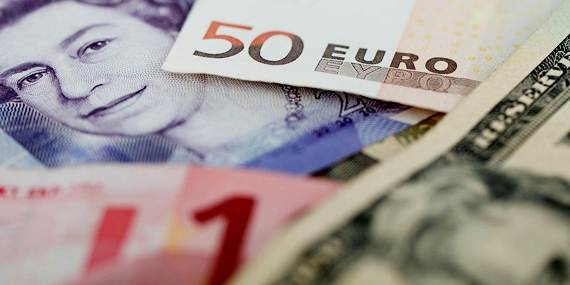
Risk appetite has soured a little overnight, ahead of a massive week filled with key economic data, policy meetings and earnings reports. Unexpectedly strong Spanish inflation data haven’t helped the mood, driving global rates higher. Currency moves have been modest and the NZD remains stuck just below the 0.65 mark.
With the end of January approaching there has been a modest reversal of pricing seen so far this month. Last week our risk appetite index closed at 9-month high of 54% and there has been a slight pullback overnight, ahead of plenty of event risk this week. The S&P500 is currently down 0.8%.
The mood hasn’t been helped by the release of Spanish CPI data. The data unexpectedly went against the “inflation is falling” narrative, with a big upside surprise for January, with the annual increase lifting to 5.8% y/y compared to 5.5% in December and the expected fall to 4.8%. It is the first euro-area country to release CPI data for January and portends stronger inflation reports elsewhere, with the re-weighting of the euro-area inflation basket injecting some forecasting uncertainty into the mix.
Market pricing for ECB meetings (beyond this week’s expected 50bps hike, which is a given) increased, pushing up rates across the curve. The immediate jump up in European bond yields after the report was sustained throughout the session, with Germany’s 2-year rate up 10bps and the 10-year rate up 8bps. The move spilled over into US Treasury yields, with moves of 6bps for the 2-year rate and 5bps for the 10-year rate, the latter up to 3.55%.
In other overnight data, Germany GDP contracted 0.2% q/q in Q4, a downward revision from an estimate earlier in the month that showed a flat result. A contraction in the current quarter would see Germany meet at least one definition of recession, although confidence indicators have been improving of late alongside the plunge in gas prices. The euro-area economic confidence index – a mix of business and consumer confidence – lifted for the third consecutive month in January to 99.9, a seven-month high, above expectations.
In currency markets the USD shows some mild support against the weaker risk appetite backdrop. JPY is at the weaker end of the leaderboard against the backdrop of higher rates, with USD/JPY up 0.3% to 130.30. Yesterday, a report from a panel of experts, including potential future BoJ deputy Governor Yuri Okina, proposed that the government and BoJ should revise the joint policy statement to make the inflation target a “long-term” goal. Okina said that the outcome would be a comprehensive rethink of monetary policy. Knee-jerk yen strength on publication of the report, with USD/JPY down to a low of 129.20, wasn’t sustained.
The AUD is also on the soft side, down to 0.7075, while the NZD continues to hover just under 0.65, where it has spent most of last week. NZD/AUD has nudged up to 0.9170. EUR/USD found support after the Spanish CPI data, rising up through 1.09, but the move wasn’t sustained and it is basically unchanged for the day around 1.0860.
In the domestic rates market, yields were marked higher for a second day running, continuing the reversal seen in the aftermath of last week’s CPI data. NZGBs were marked 2bps higher across the curve, while the swaps curve showed a mild steepening bias, with the 2-year swap rate up 3bps to 4.94% and the 10-year rate up 5bps to 4.26%. NZ trade data were slightly better than expected, but nothing to gloat about, with the annual deficit for December at $14.5b, down from an upwardly revised record annual deficit of $15.0b for November. There was no market reaction to the figures or any to the significant Auckland floods, which raise the prospect of higher inflation pressure over the short-term, with pressure on resources and higher likely food prices for the region.
The day ahead has a full calendar. China PMIs are expected to bounce back strongly, particularly for non-manufacturing, after the end of the zero-COVID policy. The key release tonight is the US employment cost index, which might be influential for Chair Powell’s tone after the FOMC meeting later this week Euro area GDP data is also worth mentioning.

We welcome your comments below. If you are not already registered, please register to comment
Remember we welcome robust, respectful and insightful debate. We don't welcome abusive or defamatory comments and will de-register those repeatedly making such comments. Our current comment policy is here.